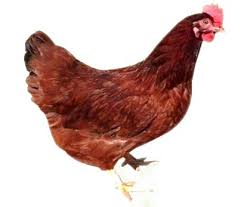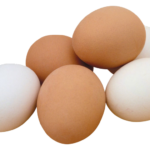Every farmer at any one time has had a case of the crop of their Kienyeji chicken swelling beyond ordinary. This is called Sour or Impacted Crop. The Crop is that part of the chicken anatomy located just beneath the neck. If a sour or impacted crop is not addressed or eased quickly, it can lead to death of the affected chicken and loss to the farmer. The entire digestive system of the chicken, like for every living bird or animal, must therefore work efficiently for the chicken to remain alive and afford the farmer some income. Most people say the pain of losing chicken is more painful than the pain of losing any other pet. Farmers attach great bonds to the chicken that it is only the exchange for money that makes their departure less painful.
The entire digestive system of the Kienyeji chicken is approximately twelve inches long, the mouth at 1 inch, the crop is roughly 3 inches, the bird’s stomach approximately 5 inches, the whole intestine going about 6 to 11 inches and finally the rectum measures around 12 inches in length. Any interruption or a block in the flow of food along any point in this channel leads to a crop that fills up and stops.
The process of fully freeing the crop and relieving the chicken of pain and discomfort can take several hours and mostly happens at night.
What causes Sour Crop?
A swollen or stopped-up crop happens when does not completely empty itself as part of the digestive process. This stoppage causes the food therein to become fermented which then turns into a bacterial or yeast infection within the said crop. The chicken can without knowing swallow pieces of plastic, rubber bands or any other indigestible matter while feeding. Sour crop can also be caused by feeding on long grasses, feeding on less grit (sand) or moldy feed and feeding on large quantities of bread among others.
How to Prevent Sour Crop
Like it us always said, preventing the occurrence of sour crop is easier than the task involved in curing it once it is allowed to occur. There are a number of ways as listed below;
- Provide lots of grit or sand to aid in digestion. This can be done by availing sand or grit near their feeding areas or allowing the chicken to roam freely and pick grit themselves within a chicken run or out in the fields within your enclosed compound.
- Provide generous quantities of fresh water to your kienyeji chicken. Chicken eat lots of dry matter and are therefore very heavy drinkers of water. Drinking water also helps in maintenance of body balance between acidic and alkaline to help avoid the harrowing effects of sour crops. The occurrence of a sour crop can also be a side effect of other ailments. Since the sour crop drains more water from the chicken’s system, excessive dehydration sets in. This is the reason farmers should never compromise on water provision for poultry all the time.
How would a farmer know her chicken has sour crop?
Mostly it easier to identify a sour crop in the morning when you visit your chicken or open their housing unit. You can also identify this as they walk around you in cases where chicken are allowed to roam freely around the human daily activity spaces. Chicken with sour crop will present the following;
- A small, usually sour may be noticed coming from the beak and in some cases a foul smelling liquid may ooze out of the kienyeji chicken’s mouth.
- The affected chicken tends to be alone, isolating herself from the rest of the flock.
- Loss of appetite.
- Swollen or widened crop which feels soft to touch
- Signs of weakness.
In cases where the crop is hard when squeezed, this is a sign of an impacted crop which is caused by very big items in the crop which cannot be passed to the rest of the digestive system. The remedy here is to help lubricate the system i.e. the mouth/throat preferably with vegetable oil to loosen the system for food movement.
How to Treat Sour Crop
- First it is always important as a first step to take the affected chicken away from others and into a secluded, quiet and comfortable area.
- Hold your chicken upside down and massage the crop gently towards the area of the head.
- Make an attempt to have the affected chicken emit some vomit which can be induced as is done to humans.
- Sour crop is a yeast infection and can also be treated with yoghurt mixed with water and apple cider vinegar.
- Natural antibiotics can also be given which help greatly in relieving the crop.


